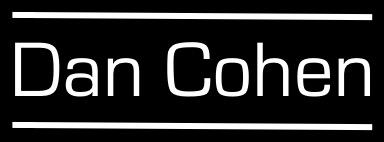[In July 2010, The Chronicle of Higher Education asked twenty-three scholars and illustrators to answer this question: What will be the defining idea of the coming decade, and why? As an intellectual historian I’m skeptical of my ability to predict the future, but I have to say I think my crystal ball functioned well this time, especially since unbeknownst to me Jaron Lanier was also asked to answer the question and proved my point; the new movie about Facebook has this tension as one of its themes; and since I wrote this the number of Facebook users has gone up by 100 million. Here’s my take on the “big idea of 2010-20.”]
Friedrich Nietzsche would have hated Twitter and Wikipedia even more than organized religion. The great champion of the individual will rising above the sheepish masses would have shuddered at what the Internet has given us in the last decade, when the Web became exponentially more social and collaborative. One can only imagine Nietzsche’s fury at a method called “crowdsourcing” and a Web browser called Flock.
I suppose every age has its debate about the individual versus the collective, with associated concerns about the place of genius and expertise, but I suspect we are heading into a decade of especially heightened sensitivity over this tension.
A new romanticism that reveres personal drive and uniqueness is dawning. The spate of books critical of the frenetic social Web, from Andrew Keen’s The Cult of the Amateur: How Today’s Internet Is Killing Our Culture (Crown Business) to Jaron Lanier’s You Are Not a Gadget (Knopf) and Nicholas Carr’s The Shallows: What the Internet Is Doing to Our Brains (W.W. Norton), are leading indicators. Just as the global expansion of fast food begat the slow-food movement, the next decade will see a “slow information” counterrevolution focused on restoring individual thought and creativity. The neo-Nietzscheans will advocate turning off (your computer) and dropping out (of Facebook).
On the other side will be those who assert, like Aristotle, that human beings are social animals and that the Internet is simply enabling the kind of interaction and collaboration we have desired since the first polis. Facebook’s Mark Zuckerberg was a classics major, after all. This big idea will reach its apex if Facebook, current population 500 million, surpasses China and India sometime in the coming decade to become the largest collective in history.
On a smaller scale, the tension between the individual and the collective will result in hand-wringing about the value of expertise and that elusive element, genius. What good is a professional restaurant reviewer when the crowd can provide wider (if not necessarily deeper) coverage? Will there be any more Newtons and Einsteins now that discoveries at the Large Hadron Collider have hundreds of co-authors? What is the effect on our psyches after we repeatedly find, via Google, that our supposedly original ideas have been previously and precisely explicated by a dozen other people?
And in 2020, will The Chronicle of Higher Education ask a handful of intellectuals to come up with the big idea of the 2020s, or instead aggregate the answers from thousands of readers?

 As if
As if